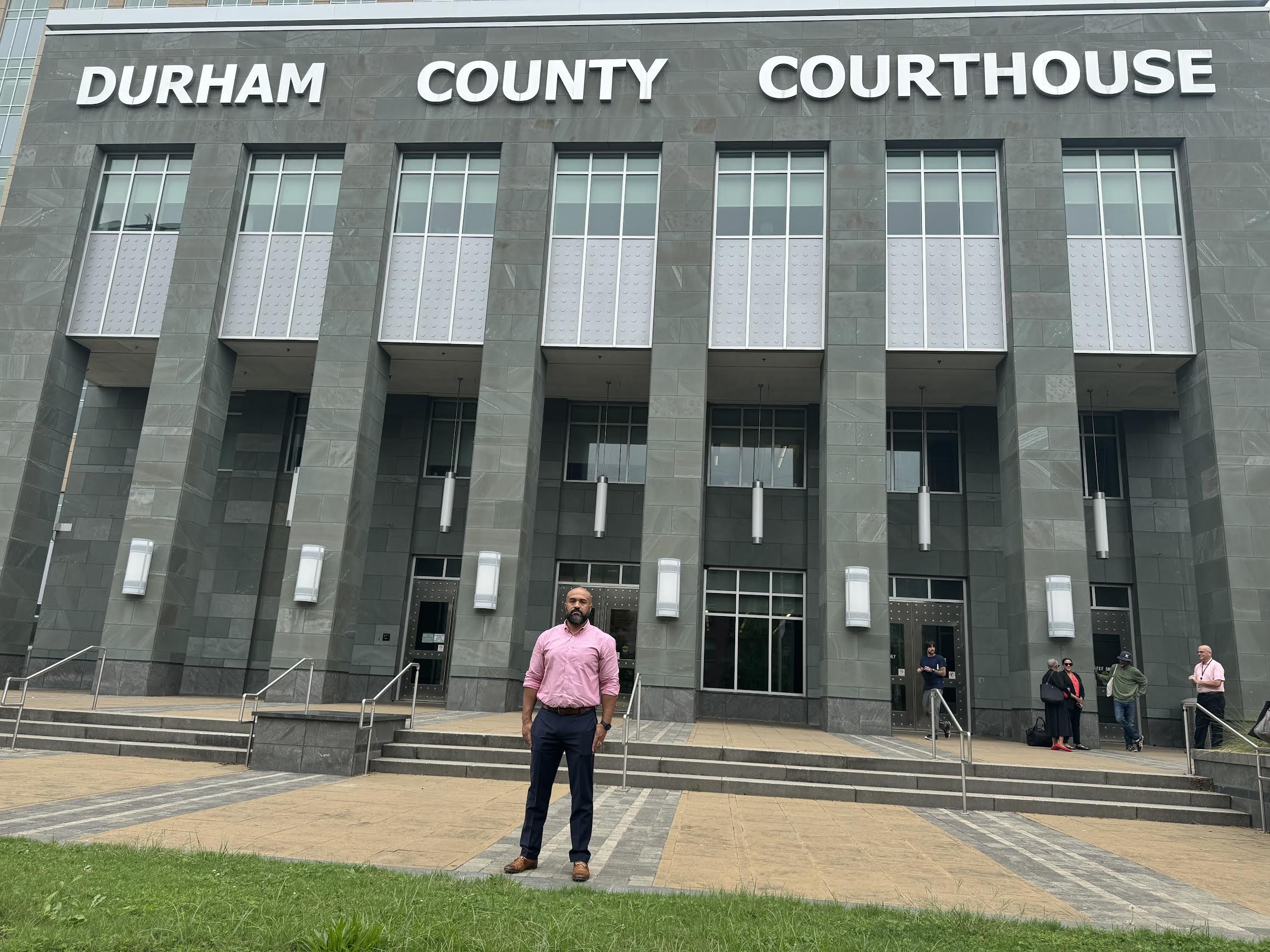Eugene Watt
Let's Talk Durham Images
A year ago, we reported on the tragic case of Daniel Watt, who was killed at the age of 26 when an intoxicated driver, traveling at 143 mph, crashed into his vehicle on the Durham Freeway. After more than three harrowing years of waiting for the sentencing, his family finally received a verdict this past Monday. We spoke with Eugene Watt, Daniel's brother, to gain insight into how they are coping with the judge's decision and the lengthy process that has consumed their lives.
Are you happy with the verdict?
No. The judge ruled in the presumptive range. The defendant pleaded guilty in an open plea, so the judge had to decide how much time he would serve. There are three ranges the judge could have ruled in: mitigating, which is less sentencing; presumptive, which is the middle ground; and aggravating. We were hoping the judge would rule in the aggravating range, but he didn’t. Now, the defendant will receive 72 to 100 months in jail. If he demonstrates good behavior, it will be reduced to 72 months. However, 6 to 8 years for the crime he committed seems very light, and it’s deeply concerning to me.
The defendant has stayed sober, as he and his lawyer suggested. Do you feel he deserves a reduced sentence?
No, I do not. There are two reasons for that: First, as my sister stated in court, one purpose of sentencing is deterrence. We must consider what this case means for future cases. If driving at 143 mph with double the legal alcohol limit doesn’t qualify as aggravating circumstances, then what does? What more must one do to receive the maximum sentence in this county?
Second, the defendant has been under constant monitoring with an alcohol monitor, which means he cannot drink without violating his probation. In 6 to 8 years, he will be released and could potentially harm other families. I do not want that to happen.
Can you appeal this decision?
No, there is nothing our family can do at this point. Everything is at the discretion of the Durham District Attorney’s office. We felt blindsided by the reduced sentence. The defendant was indicted on second-degree murder charges, a B2 felony. The DA offered him a felony by motor vehicle charge, which is a Class D felony—a significant reduction in sentencing time.
What did you think of the defendant’s apology?
It felt strategic and standard. Does he feel remorse? I don’t know—that’s not for me to judge. It’s the first time he has shown remorse, so it’s hard for me to believe he is genuinely remorseful on the day he is being sentenced.
What could have been done better during this process?
We would have preferred to go to court before going to trial. I believe 12 people from the community would have recognized the injustice occurring.
Why didn’t you go to court?
Because the DA offered a plea deal.

